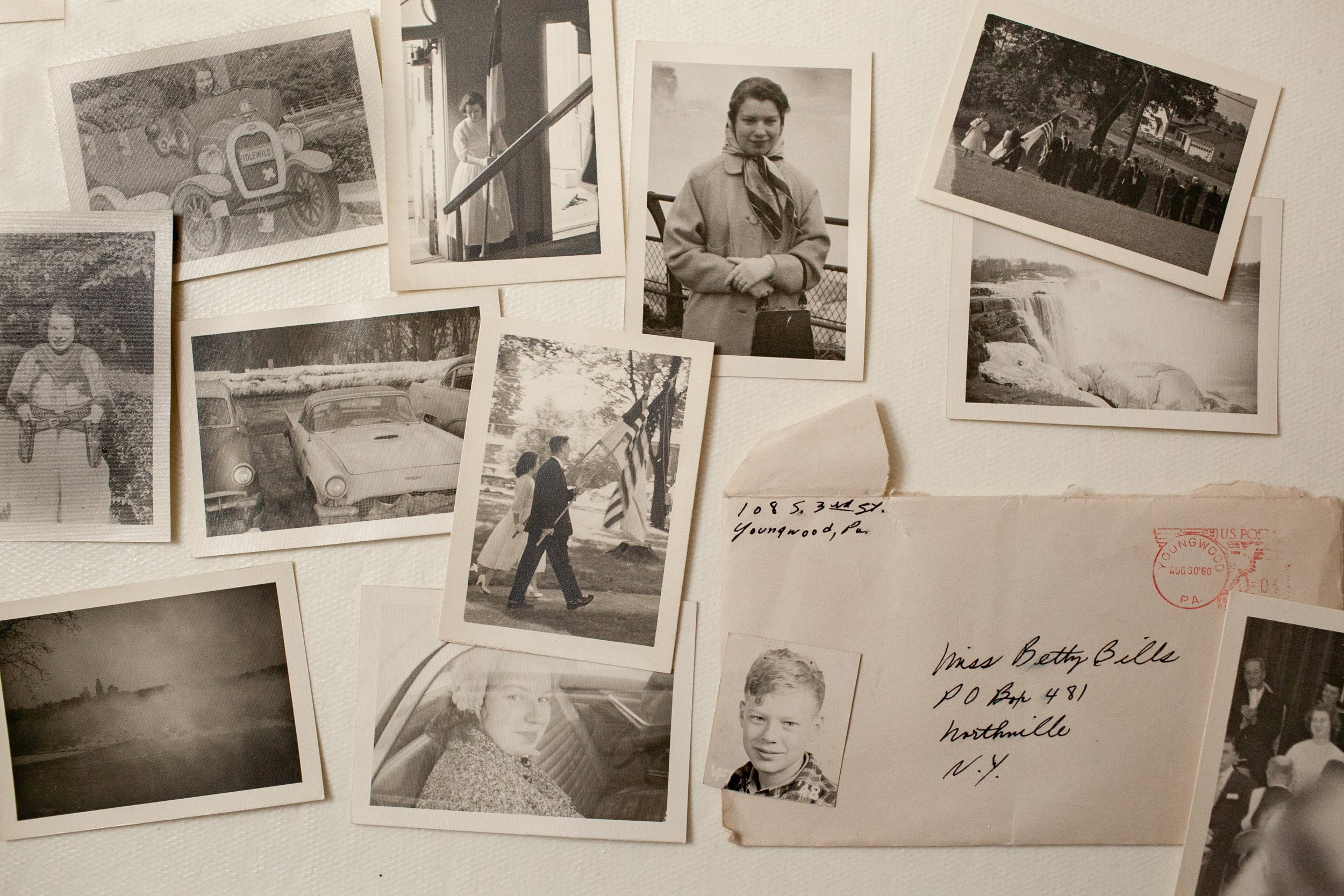I love a good before and after photo. Most of the time, I see them in the various interior design/home renovations accounts I follow on Instagram. Whether it is a restored piece of furniture or an entire home renovation, it’s exciting to see a transformation. But a quick swipe right doesn’t fully convey the blood, sweat, and possible tears of a project. Any restoration or renovation is a journey. My kids and I were reminded of this when painted our fireplace. I recorded a few clips of the process, and when I compiled my Instagram reel I laughed knowing that this 30-second clip could never reveal the effort required to get the desired end result.
In the Christian walk, many of us want to see the drastic before and after. But when we don’t see “progress,” we wonder things like:
—Why don’t I feel different?
—Why do I still battle the same struggles?
—I feel like every step forward I take in the Christian walk, I go two steps back.
We want quick results, hoping to fast-forward our sanctification process, master certain aspects of the Christian walk, and, essentially, “level up” our Christian faith.
This is an area that I’ve wrestled with for years. Like Paul, I cry out in frustration asking God why I do the things I don’t want to do and don’t do the things I want to do (Rom. 7:15). Like the Pharisees, I try to implement religious systems to help keep my heart in check. And like John 15’s poignant reminder, I quickly realize that in and of myself, I am spiritually bankrupt. Apart from Jesus, I can do nothing. There are no ranks in Christianity. When I think I’ve leveled up, he humbles me and brings me back to level 0 where I started, and where I was always intended to stay.
As Christians, our before and after works differently: we have both immediate transformation and ongoing sanctification that leads to our final glorification. So, how do we reconcile who we are in Christ with who He is still making us to be?
OUR “BEFORE”
Before we can look to who we are now, we must remember who we once were. Prior to our conversion, Scripture is quite clear on the state of our hearts and minds:
We were dead in our trespasses.
”And you were dead in the trespasses and sins in which you once walked. . .” —Eph. 2:1-2a
We were incapable of righteous living.
”…as it is written: ‘None is righteous, no, not one; no one understands; no one seeks for God. All have turned aside; together they have become worthless; no one does good, not even one.’” —Rom. 3:10-12
We were incapable of good deeds.
”We have all become like one who is unclean, and all our righteous deeds are like a polluted garment. We all fade like a leaf, and our iniquities, like the wind, take us away.” —Is. 64:6
We were destined for eternal damnation.
”For the wages of sin is death, but the gift of God is eternal life.” —Rom. 6:23
But because God is rich in mercy, we don’t have to stay there. The solution is found at the end of Romans 6:23: the gift of God is eternal life through His Son Jesus. We obtain this through confessing, repenting, and turning away from sin. In doing this we declare Jesus as Lord and recognize that He is the way, the truth, and the Life—no one comes to God except through Him (John 14:6).
IMMEDIATE TRANSFORMATION
A person is justified immediately upon salvation. In his book “Biblical Doctrines,” John MacArthur defines justification as:
“an instantaneous act of God whereby as a gift of his grace, he imputes to a believing sinner the full and perfect righteousness of Christ through faith alone and legally declares him perfectly righteous in his sight, forgiving the sinner of all unrighteousness and thus delivering him from all condemnation.” [1]
In other words, we are declared righteous instantly—not by anything that we’ve done or will do, but by grace through faith in Christ alone. Romans 3:23 tells us that we fall short of God’s glory but verse 24 provides the solution that we “are justified by his grace as a gift, through the redemption that is in Christ Jesus…”
This is a legal declaration changing our status from guilty to fully righteous! Romans 8:33 says, “Who shall bring any charge against God’s elect? It is God who justifies. Who is to condemn?” The penalty for our sin has been paid in full and we no longer stand condemned. In short, we are given both forgiveness of sin and a provision of righteousness. [2]
Although we know this truth, we don’t live according to it perfectly. What MacArthur writes here encourages my soul so much:
”We do not live lives of perfect righteousness, walking in obedience to God in all things, loving him with all our heart, soul, mind, and strength, and loving our neighbors as ourselves. Neither could we pay the penalty that our disobedience demands without pershing eternally in hell. Therefore, if we are to be saved, our substitute must not only pay our penalty by absorbing the wrath of God against our sin but must also obey all the positive demands of the law that were required of us. …without the positive provision of righteousness, mere forgiveness would leave us in a state of innocence or moral neutrality, as Adam was before the fall—reckened as never having sinned but as never having obeyed either. For this reason, Scripture speaks of the justified sinner being counted righteous in addition to being forgiven.” [3]
Friends, this is why the Gospel is great news! Salvation truly is a gift and it’s freely given to any who will receive it. Unlike every other world religion, the Gospel is set apart as it is the only truth claim that isn’t works-based righteousness. The fact that it is not dependent on the merit I can muster up is miraculous. I know that I do not love the Lord or serve Him perfectly. When I try, I fall flat on my face every single time. Who can honestly stand when we see the standard before us?
In Christ, we are a new creation. In Christ, we who were once dead have been made alive (Eph. 2:5.) In Christ, we moved from slaves to sin and are now slaves to Him (Rom. 6:22). In Christ, we were once condemned for our sin but now we have no condemnation (Rom. 1:17).
But not only this, we’ve been united to Him adopted into His family (Gal. 4:6-7), sealed with the Holy Spirit (Eph. 1:13), imparted with spiritual gifts (1 Cor. 12), offered the ability to pray directly to our Father (Heb. 4:14-15), welcomed into the Body of Christ (Rom. 12:1), given the opportunity to proclaim Him to others (Matt. 28:19), and have a future inheritance (1 Pet. 1:4)!
Oh, how I am guilty of forgetting these good gifts! In my fight against the flesh, how easy it is for me to miss the very things I was bestowed at salvation.
ONGOING SANCTIFICATION
Now that we understand that we have a righteous standing before God, we still have to deal with the present sin we fight daily. Some old habits don’t die fast and that frustrates me to no end. Ephesians 4:22 exhorts us to put off the old and put on the new. We must fight our flesh, move from spiritual infancy to maturity, abide in Jesus, and work out our salvation with fear and trembling—all in dependence on the Holy Spirit. Our struggle to put off sin so we can put on holiness is the sanctification process.
MacArthur defines sanctification as:
In sanctification, God, working espeically by the Holy Spirit, separates the believer unto himself and makes him incereasingly holy, progressively trasnforming him into the image of Christ by subduing the power of sin in his life and enabling him to bear the fruit of obedience in his life.
Simply put, sanctification is progressive conformity to the image of Christ. Because of Jesus’ life, death, and resurrection, we know that death and sin no longer have dominion over us (Rom. 6:9-10). We’ve been set free! This is why Paul reminds us in 6:12 to not let sin reign in us because we’ve been given every opportunity to fight our flesh and overcome sin patterns in our life.
But if you’re anything like me, we don’t always believe that to be true. When we allow our feelings to cloud our reality, our failure in righteous living can keep us down. This is where our present reality must intersect with the truth of the Gospel. We have been crucified with Christ and now Christ lives in us (Gal. 2:20) — this is our power! John Murray in “Redemption Accomplished and Applied” writes:
“Though sin still remains it does not have the mastery. There is a total difference between serving sin and reigning sin…it is one thing for sin to live in us: it is another for us to live in sin.” [4]
We still live in the flesh but the power of sin is no longer present. We cannot forget this reality. It’s not about perfection, but direction. [5] Knowing this, we still strive in the power of the Holy Spirit to kill our flesh daily.
Sanctification is not performing religious duties alone but involves inward affection that overflows into righteous living. We can only love God because He first loved us, therefore, our affection for Him will drive us to put off the sin and pursue righteousness in our own lives as best as we can.
Charles Hodge explains this further:
As regeneration is not an act of the subject of the work, but in the language of the Bible a new birth, a new creation, a quickening or communicating a new life, ….so santification in its essential nature is not holy acts, but such a change in the state of the soul, that sinful acts become more infrequent, and holy acts more and more habitual and controlling.
Recently, I vented to my father-in-law, about my own struggle in personal sanctification. I confessed my inability to grasp the part I play in the sanctification process because my attempts, at times, feel futile. He responded with these words, “We are to do the putting off, and He is to do the putting on.”
Phil. 2:3 says that “it is God who works in you, both to will and to work for his good pleasure” and 2 Corinthians 3:18 says, “And we all, with unveiled face, beholding the glory of the Lord, are being transformed into the same image from one degree of glory to another. For this comes from the Lord who is the Spirit.”
While God is the author of our sanctification, we still have a part to play in the pursuit of holiness. To answer my previous question about who does what in the sanctification process, Murray states:
God’s working in us is not suspended because we work, no our working suspended because God works. Neither is the relationship strictly one of cooperation as if God did his part and we did ours so that the conjunction of coordination of both produced the required result. God works in us and we also work. But the realation is that because God works, we work. All working out of salvation on our part is the effect of God’s working in us. [6]
MacArthur likens this concept to a farmer who doesn’t passively wait on his crops to grow. He knows that God gives the growth but still plants the seed anyway. A foolish farmer might sit idly by, but a wise farmer labors alongside the Lord. Similarly, we utilize the means of sanctification in obedience to God’s commands. As we read our Bibles, spend time in prayer, fellowship, and worship with the saints in the context of a local church—all the while beholding God’s glory—so will we be slowly transformed. And to have an assurance that we are on the right track, there will be fruit evidenced in our lives.
We will not walk this journey perfectly, but our stumbling can result in praise to God knowing our journey doesn’t depend on us. This knowledge helps us understand both that spiritual “progress” is to His praise and that in spiritual “failures” we are held by His grace.
OUR FINAL “AFTER”: GLORIFICATION
The good news is that our sanctification will be perfected! He who began a good work in us will bring it to completion (Phil. 1:6.) and following this is our glorification. Murray defines glorification as:
…the complete and final redemption of the whole person, when in the integrity of body and spirit, the people of God will be conformed to the image of th rsien, esxalted, and glorified Redeemer, when the very body of their humiliation will be conformed to the body of Christ’s glory (Phil. 3:21). [7]
Every stubborn habit and every sin pattern will no longer be a part of our DNA. We will no longer be tainted by the curse of sin or endure physical limitations. Like Jesus, we will be raised in glory with resurrected bodies fully capable of doing all that God commands! Our ability to live a pure, holy, and righteous life for the glory of God will be 100% possible. Our final “after” is far more glorious than we can imagine!
CONCLUSION
We have been given so much and yet, God’s work is not yet done! Like the in-between phase of a renovation project, we too are a work in progress. And yet, God sees Jesus’ righteousness has become our own. God is not focused on us before Christ, but who we are in Christ.
This is news worth shouting from the rooftops! The quick “before and after” we desire fails to display the means of grace He uses right now which teaches us to depend on Him and display His perfect power in our weakness. In my frustration with battling sin, I can look to what was given me at salvation, what I’ve been equipped to do now, and what will become of me with complete hope. And the best part is that I am not called to do this in my own strength. Every single point from conversion to glorification leads me back to the Gospel again and again and again.
Do not be discouraged with your present failings. Let us rest rejoice in our present reality and remember the promise that He who began a good work in us will undoubtedly bring it to completion (Phil. 1:6.)



















